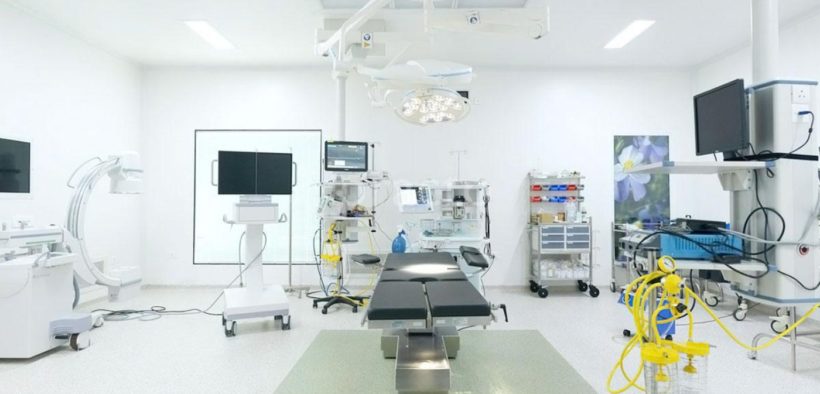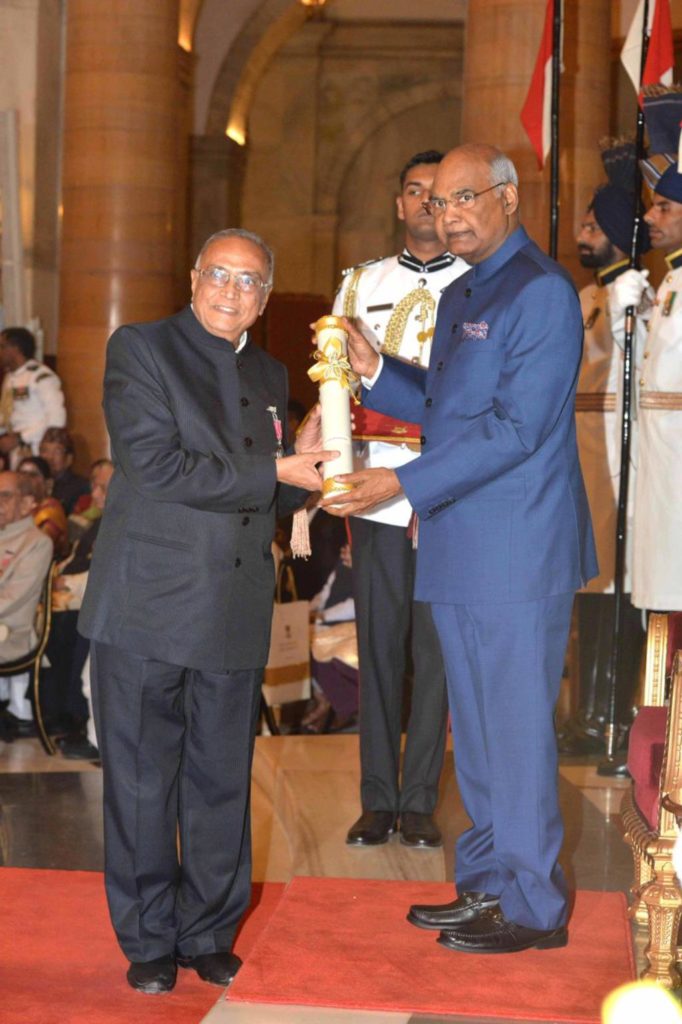A Teacher Par Excellence

In conversation with Padma Shri Dr Pankaj M Shah, who retired as director of the Gujarat Cancer Research Institute, and works as a consultant with Zydus Hospitals, Ahmedabad, about his four decades of service in the field of oncology
BY DIPNA KIRPALANI
What is the role of public-private partnerships in helping India become self-sufficient in terms of cancer infrastructure and cancer care?
As far as PPP is concerned, an apt example would the GCRI. It was formed by the Gujarat Cancer Society and the state government in 1972 and they continue to run the institute. From 1973, I worked there until I retired. I really enjoyed my work there as I was able to give my time to society and help in its development. GCRI has become one of the leading cancer research centers in the country. I started as a physician, and went on to become the first oncologist and first oncology teacher there; we have created more than 150 medical oncologists for the country. So I see this as a contribution of vital significance by PPP to society.
How can India step up to the challenge of creating indigenous and affordable drugs to fight cancer?
I think research has become too expensive for India, considering the manner in which we are practicing medicine. Obviously, our observations must be validated by the trials we run. We must also not push away local observations like for instance, if someone were to come out with a finding that a particular indigenous tree or plant is helpful, then we must surely research that rather than copy someone else’s research work. But modern research is too expensive. The only solution is to collaborate with other researchers and share resources to get the required results for the good of our people.

“WE ALSO PUBLISH LITERATURE ON CANCER, WHICH INCLUDES GENERAL INFORMATION ON CANCER BY DR SHIRIN SHUKLA. WE ALSO HAVE MANY BOOKLETS ON CANCER. SO, THIS IS HOW THE NGO WHERE I’M WORKING IS TRYING TO SPREAD AWARENESS ON CANCER AND BASICALLY, DECODE CANCER FOR THE LAYMAN.”
Padma Shri Dr Pankaj M Shah, Head of Breast Services, Jehangir Hospital
When it comes to medical education with oncology as a specialty, how does India compare to the world in terms of educational opportunities?
Initially, education opportunities were very few. GCRI started DM Oncology courses back in 1992. At that time, there were only two institutions, Adayar and us, and there were input and insight coming from just 8 oncologists. Presently, in India, about 100 medical oncologists are being trained annually. Hence, we are now able to cope with the demand raised by the country’s needs.
Recently, GCRI was also given permission to start Onco-pathology, which is much needed in India, as the number of oncologists opting for pathology is very less. So, for the last 40 years, we have been trying to make up for the shortage of specialists in the country. I think it’s moving in the right direction. Overall, I’m happy that every year we are producing nearly 50,000 medical graduates, and if each medical college has basic training for oncology, the sky is the limit.
You are a Padma Shri awardee, and you have received the BC Roy Award too. Of all these recognitions and honors, what is it that you hold closest to your heart?
Being a teacher. The BC Roy Award was for teaching. I think the recognition of being a teacher is always a great thing for someone. If you create something for the future, that is something to really take pride in. But it’s really a recognition of my team which has supported me day and night, those who have worked with me for so many years. However, what’s more, important than recognition is to do something that you love.
What are the milestones or pioneering changes in your career that you are most proud of?
Firstly, it would be my decision to not go abroad. After MD, I decided to join the cancer institute, starting out as a physician for nuclear medicine. The entire atmosphere there was very enriching. The director was a very dynamic person; he wanted to start chemotherapy for cancer in our institute. So he sent me to Germany for seven days to attend a cancer chemotherapy course organized by UICC. I kind of look at this as my rebirth, as a medical oncologist in the country, and this is the moment I am proud of.
Tell us more about the Sadvichar Parivar, and its contributions towards cancer awareness.
After I joined this institute, I thought that there’s a lot of potential in an independent institute such as this one. In a metro like Ahmedabad, it becomes a neutral place where everybody can come together.
So, we started with onco-seminars here. We started doing monthly activities on oncology. For the last five years, we have been running regular meetings called Seminars in Oncology; these are announced at least six months in advance.
Initially, I used to schedule it on Sundays but now I’ve moved it to a weekday because I want more people to take part in the activities. This was how all the oncology-related activities started here. We were then able to book a hall which could accommodate 250 people. We also hosted MOSCON (Molecular Oncology Conference) for two years. Now we have many halls that can accommodate the needs of the oncology community. We celebrate No Tobacco Day and World Cancer Day in collaboration with other agencies.
We also publish literature on cancer, which includes general information on cancer by Dr. Shirin Shukla. We also have many booklets on cancer. So, this is how the NGO where I’m working is trying to spread awareness on cancer and basically, decode cancer for the layman. We also have a periodical, Sadvichar Parivar: Suvichar, where we publish more interviews.
Do tell us about the work you are doing with the Community Oncology Centre in Ahmedabad.
The Community Oncology Centre was the place where a hospice was planned in 1986. Since this was land gifted by a donor, we thought of converting it into community oncology, center a cancer education center with its own flavor. So, we developed this in 1992. We installed a permanent, first-of-its-kind exhibition on cancer, which features all you need to know about cancer, spread out over the entire first floor of the building.
We also offer cancer-related health check-ups as well as cancer-related insurance policies. We invite school students over to the building for various activities such as essay writing and sketching. They also get a chance to meet cancer patients so that they get the message that if they do not follow the guidelines, this could happen to them too. This is the concept behind the Community Oncology Centre.
How do you maintain a balance between work and personal life? How do you unwind?
I haven’t thought about maintaining a balance as such, but I enjoy doing what I do with full joy and enthusiasm. How do I unwind? That would be with the time I spend with my wife. She’s also in the same field as me. She has been a pioneer for onco care as well as nephrology care in Gujarat. We are a happy family, able to enjoy doing what we do.
Also read about
















